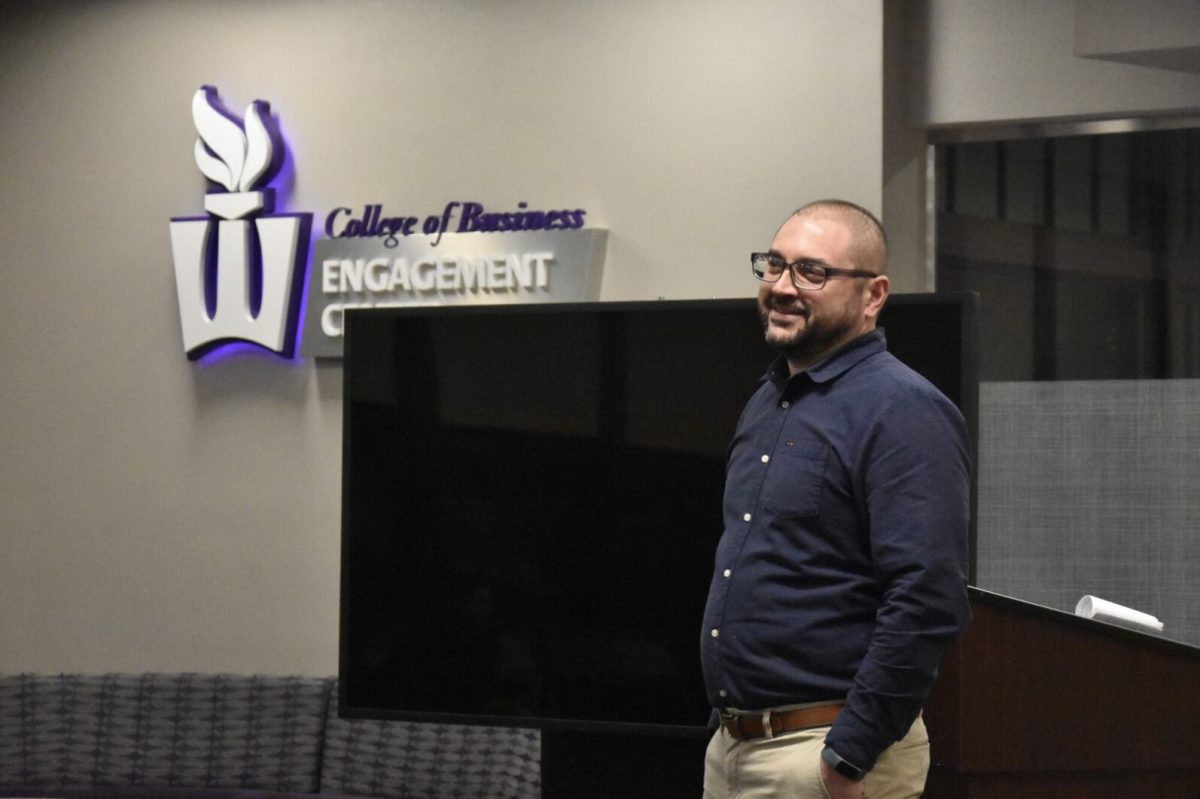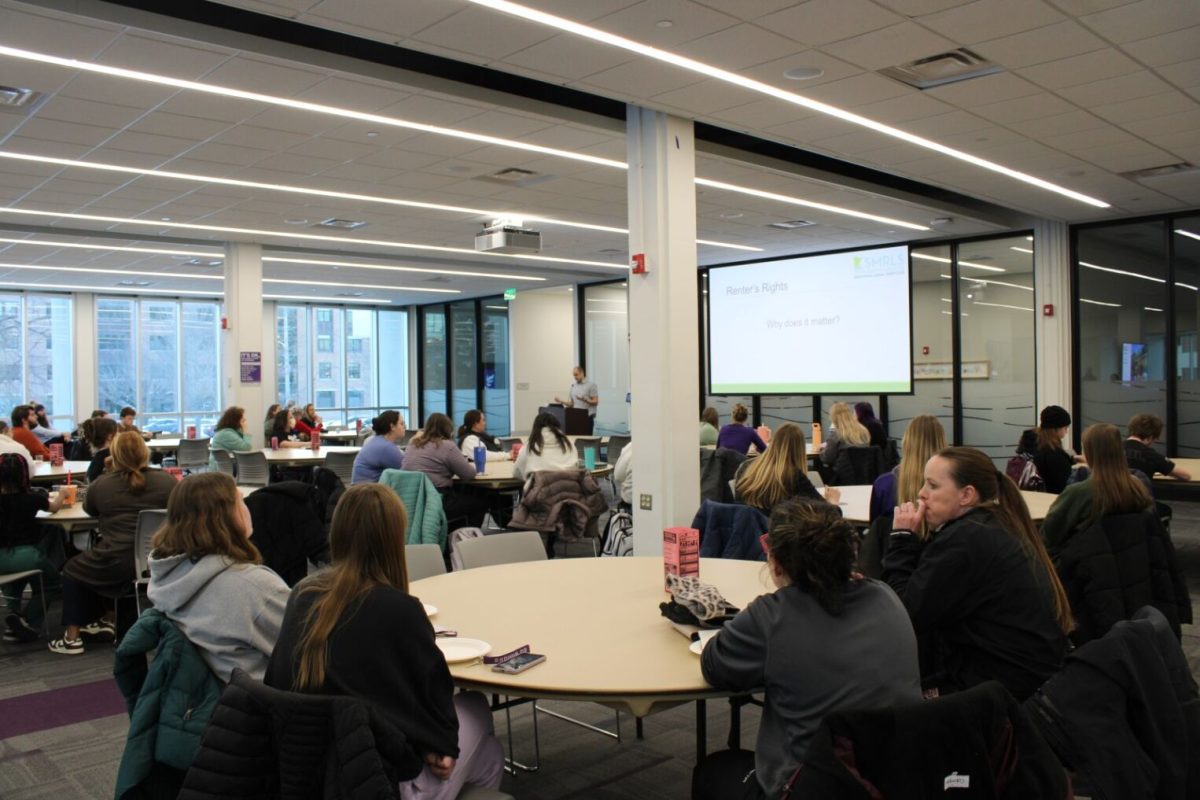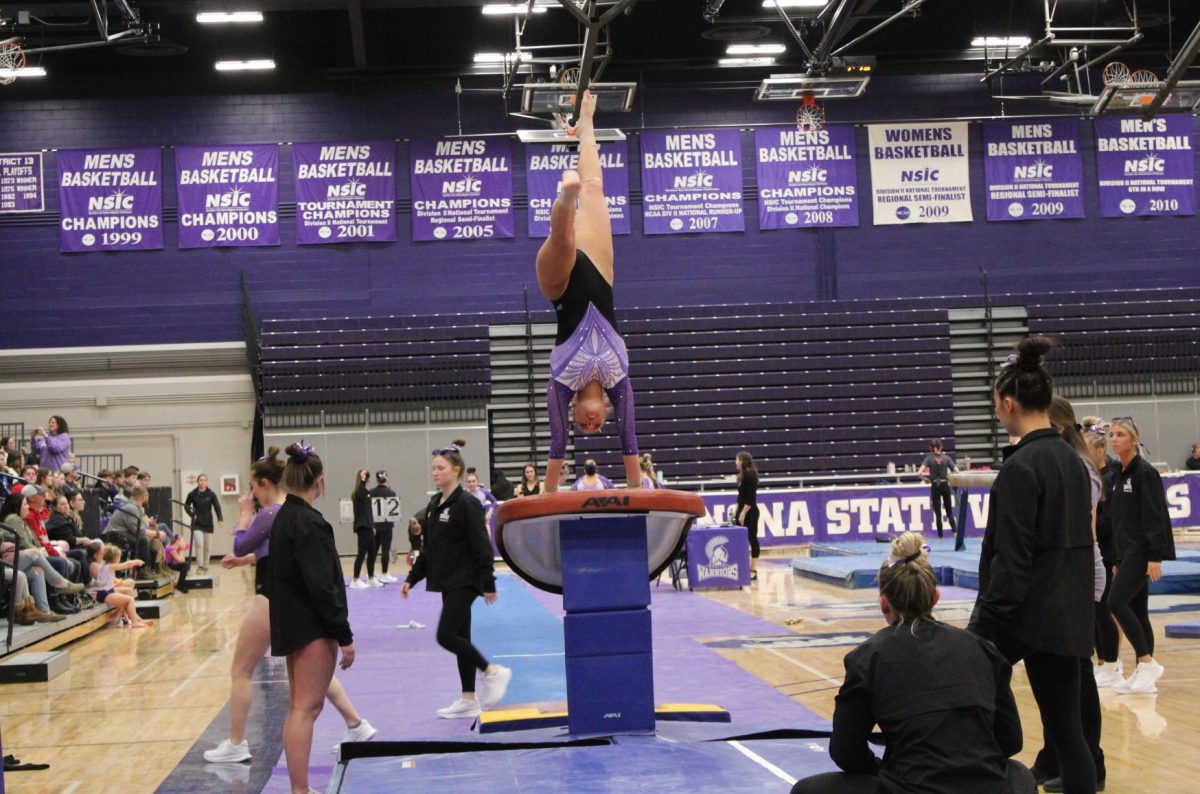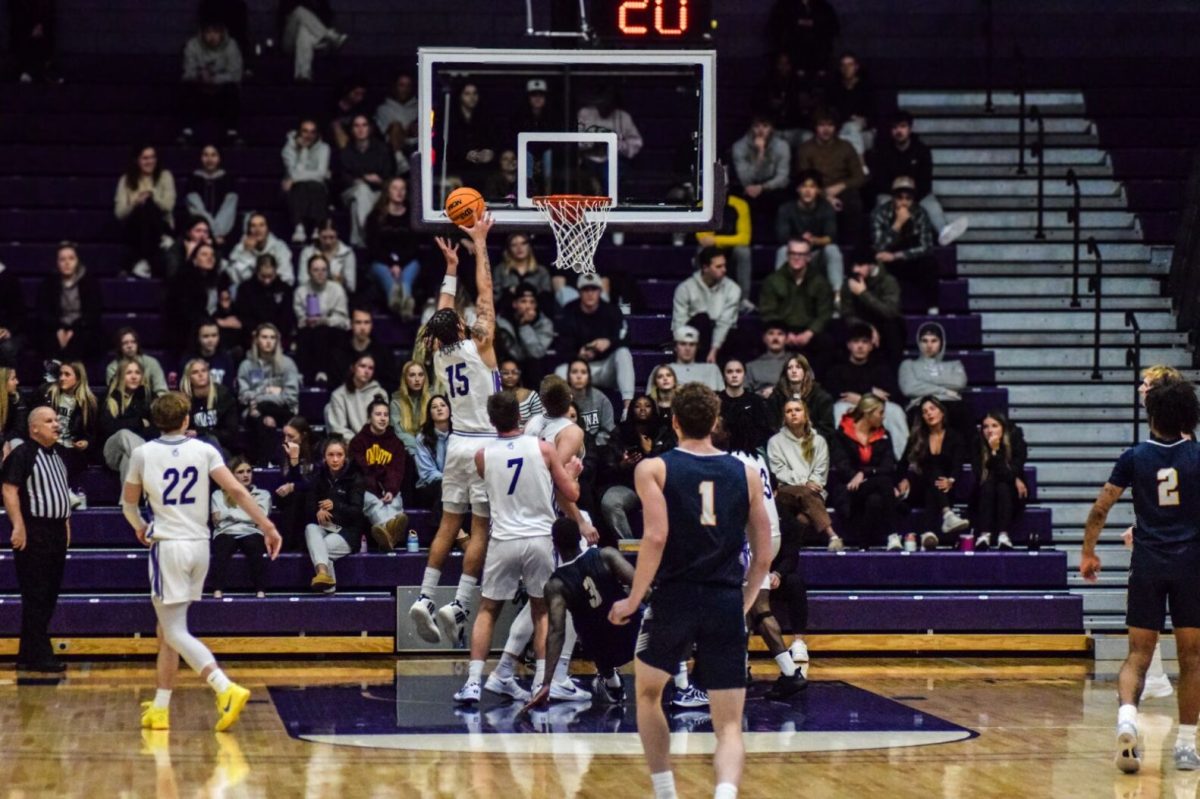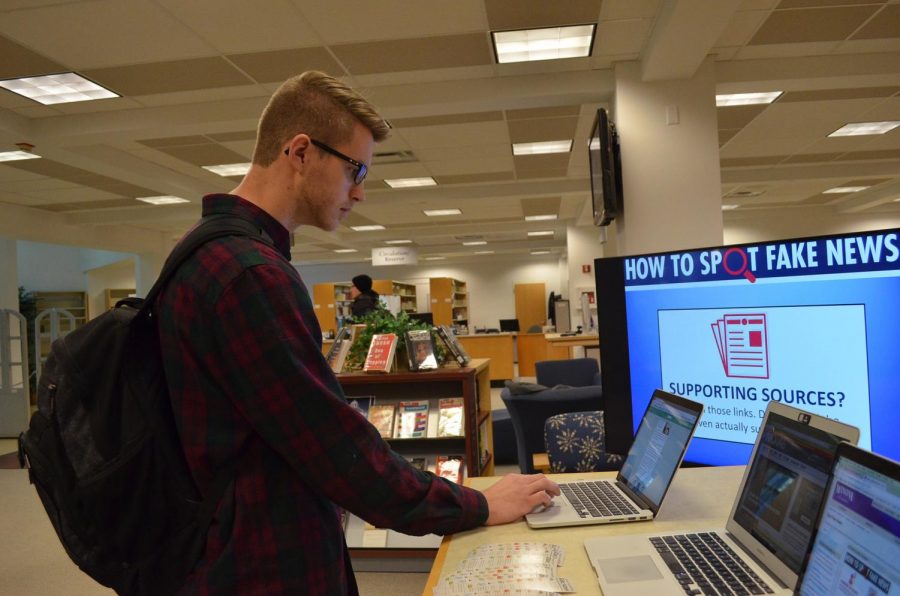Winona State calls out fake news
Fifth-year public relations major Sam Wareham participates in a quiz testing his knowledge on how to spot fake news during Tech Tuesday’s “How To Spot Fake News” in the library on Tuesday, Nov. 21. Faculty guided participants navigate which news sites were credible with the help of slide shows and a final quiz.
November 29, 2017
Winona State University took the time on Tuesday, Nov. 21 to address the issue of modern day “fake news” and how it is distributed.
Mass communications professor, Cindy Killion, said that “the phrase [fake news] actually was used three times in American newspapers in 1890 and 1891.”
The phrase has existed for over a century but in the last year the topic of fake news has become ever more prevalent when talking about news and news media.
According to GoogleTrends, the phrase ‘fake news’ reached its highest search numbers in Jan. 2017.
Fake news has no official definition. However, it has several different definitions depending on who is asked to define it.
The most common definitions of fake news are centered on the concept that fake news is falsified or biased information that is used to create doubt or misinformation and spread a desired message to the public or a group of people. This “fake news” is spread with a certain motive from the person or group of people spreading the information.
“Fake news is deliberately spreading misinformation and hoaxes with the intent to mislead the public and/or promote an agenda – usually for political or monetary gains,” Winona State librarian and professor, Carol Daul-Elhindi said.
This is the type of fake news that Winona State’s event focused on educating students and community members about.
Winona State and the staff in the Darrell Krueger Library pushes students to look at every story that they come across with skepticism and a critical lens. By doing this, students are then put in the place to question whether the information they are reading is the complete, unbiased truth.
Students were also told what not to do when reading news online. Students were instructed to not trust the headline or a photo or expect it to reflect the story accurately or not to trust a website even though it may look put together and “professional.” The students were urged to take the time to think about the information they have been given and not react hastily to it.
“All news sources can be vulnerable to fake news,” Faculty Development Coordinator, Chad Kjorlien said.
There are websites and browser extensions that were mentioned during Winona State’s Tech Tuesday and on their e_wazoo Instagram account to help search for fake news. The ones mentioned were Chrome’s BS Detector, Snopes and FB Fake News Info/FactCheck.org.
Readers are also urged to do their own investigation of information that they do not think is accurate or is biased one way.
“Double-checking, going and seeing what other organizations are reporting. Don’t just ‘be this is all I’m going to read.’ Check out other reports,” Killion said.



